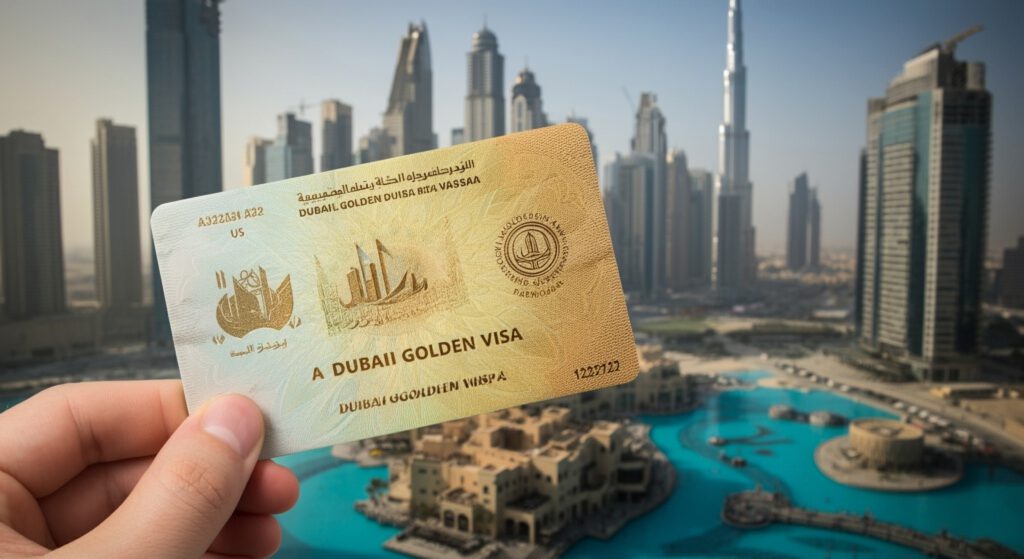High taxes can, unfortunately, be a real killer for entrepreneurs, as they reduce profitability and limit growth. Understanding and managing business taxes is crucial for entrepreneurs because every dollar you pay in taxes is money that could have been reinvested into your business, used to expand your operations, or even saved for personal financial security. With offshore incorporation in The UAE, business owners can potentially reduce taxes while making strategic investments, leading to significant savings. Therefore, it’s no surprise that many business owners actively seek ways to legally reduce their tax burden. When it comes to taxes business offshore in The UAE, strategic investments and smart incorporation can lead to major savings. Understanding how to structure your business, your personal tax residency and your financial holdings is key to maximizing the benefits of living and operating in a tax-free country.
Essential tax planning strategies are vital for entrepreneurs to navigate the complexities of business ownership effectively. Mastering these strategies can significantly impact a business’s financial health and success.
But relocating to a tax-free jurisdiction is not a magic pill. Without proper planning and strategy, you could still face tax liabilities, compliance issues or even legal trouble. Knowing how to structure your business, your personal tax residency and your financial holdings is key to maximizing the benefits of living and operating in a tax-free country.
This guide will show you 4 smart strategies to fully capitalize on tax-free jurisdictions while complying with international tax laws. If you’re an entrepreneur the dream isn’t just about making money – it’s about keeping it.
Understanding Tax Planning for Entrepreneurs
Tax planning is a crucial aspect of entrepreneurship, as it can help small business owners minimize their tax liability, maximize their tax benefits, and ensure compliance with tax laws. Effective tax planning involves understanding the tax laws and regulations that apply to your business, as well as identifying opportunities to reduce your tax burden. By strategically planning your taxes, you can make informed decisions that will benefit your business in the long run.
Importance of Tax Planning for Small Businesses
Tax planning is essential for small businesses because it can help them save money, reduce their tax liability, and increase their financial health. By understanding the tax laws and regulations that apply to their business, small business owners can make informed decisions about their financial affairs and avoid costly mistakes. Additionally, tax planning can help small businesses take advantage of tax incentives and credits that can help them grow and succeed. For instance, knowing which expenses qualify for tax deductions can significantly lower your taxable income, thereby reducing your overall tax burden.
1. Reassess Your Business Structure
Moving to a country with no tax is the perfect opportunity to review your current business setup. A poorly structured business can still lead to unnecessary tax payments even in a tax-friendly jurisdiction. Mastering tax planning strategies, such as utilizing deductions and credits, income deferral, and expense acceleration, can significantly impact your business’s financial health and ensure compliance with tax regulations.
These will help you when reassessing your business structure:
Form Offshore Companies
Incorporating your business in a zero-tax country can lead to significant tax savings. Countries like Dubai and Singapore make it easy to register a business and offer:
-
Lower corporate tax rates.
-
100% foreign ownership in special tax regimes.
-
Access to international markets with minimal tax burdens.
Minimize Withholding Taxes
Correct structuring can cut or eliminate withholding taxes on dividends, royalties or profits distributed across jurisdictions. Choose the right holding structure to prevent unnecessary tax burdens when transferring money across borders. Additionally, businesses can leverage various tax credits, such as the Work Opportunity Tax Credit and investment tax credits, to further reduce their tax liabilities.
Branch Offices
If you operate in multiple countries, opening a branch in a tax-free jurisdiction can help minimize the corporate tax rate on money flowing between your entities. Many international businesses use this strategy to ensure most of their earnings are taxed at lower rates. Additionally, taking advantage of various tax credits, such as the Research and Development Tax Credit and the Work Opportunity Tax Credit, can further reduce your overall tax liability and support your business’s financial health.
Pro Tip for Tax Planning
Work with tax advisors to ensure your structure aligns with local tax laws, double taxation treaties and specific business requirements.

2. Leverage Double Taxation Avoidance Agreements (DTAA)
One of the biggest challenges when operating across multiple countries is being taxed for the same foreign income in more than one jurisdiction. That’s where Double Taxation Avoidance Agreements (DTAA) come in.
What Is a DTAA? This is an agreement between two countries to prevent individuals or businesses from being taxed twice on the same income. For tax purposes, proper documentation and residency status is key when claiming DTAA benefits to avoid double taxation. It also may offer certain tax exemptions that prevent individuals and businesses from being taxed on the same income in multiple countries.
Practical Examples
A tech entrepreneur operating in both India and The UAE can use the India-UAE DTAA to avoid paying income taxes on the same earnings in both countries. Similarly, the UK-Singapore DTAA is another popular example.
How It’s Done
By submitting the required tax residency certificate to your home country you can claim DTAA benefits for income earned abroad. Understanding how to use DTAAs can help you reduce your tax liability legally while staying compliant.
Why It’s Essential
Without understanding DTAAs you could unknowingly pay taxes on the same foreign income, negating the tax savings of moving to a tax-free country.

3. Optimise Personal Income Through Residency Programs
Some countries impose income tax based on citizenship rather than residency. For example, the U.S. imposes income tax on its citizens no matter where they live. Entrepreneurs should ensure they understand the tax residency rules of their home country before moving. The best way to reduce income tax is to relocate yourself, not just your business. Many income tax-free countries offer residency programs that allow entrepreneurs to gain significant personal tax benefits. Additionally, certain residency programs can help defer or eliminate capital gains taxes, providing further financial advantages.
Popular Residency Programs
-
UAE Golden Visa – Long-term residency for high-net-worth individuals, investors, and entrepreneurs.
-
Monaco Residency – Offers exclusivity and zero income tax, popular among wealthy individuals.
-
St. Kitts and Nevis Citizenship by Investment – A program providing a tax haven for those seeking to stop paying taxes in high-tax countries.
For entrepreneurs seeking long-term financial security, obtaining citizenship in a tax-free country can offer additional benefits, including greater mobility, asset protection, and reduced tax obligations.
You Need These Two Steps to Benefit Fully
1. Sever Ties to High Tax Countries
Maintaining strong connections in your previous country – such as permanent housing or active business is considered risky. It may lead to continued tax residence status there and you will have to pay income taxes despite relocation.
2. Document Everything
Residency planning requires organized documentation, proof that you are a legal tax resident of your new country. Keep records of:
-
Entry and exit dates.
-
Proof of residence (lease agreements, utility bills).
-
Local tax filings.

4. Diversify and Protect Your Wealth
Moving to a tax-free jurisdiction also gives you more opportunities to diversify and safeguard your assets. Use this chance to protect your wealth from political, economic or legal risks in your home country.
What are “Tax-Free Jurisdictions”?
A tax-free jurisdiction is a country with no personal income tax, corporate tax or very low tax rates. While many tax-free countries eliminate corporate and personal income tax some still impose other forms of tax like sales tax or value-added tax (VAT).
For example, the United Arab Emirates has a 5% VAT which applies to most goods and services although it has no personal or corporate income tax. This list includes: Monaco, Cayman Islands, and Hong Kong.
But moving to a tax-free jurisdiction isn’t just about lowering personal taxes; it’s a golden opportunity to optimize business operations, increase profits and be globally competitive. For entrepreneurs, these destinations offer more than just tax savings. They offer business ecosystems, pro-growth legal frameworks and favourably compliance landscapes. Here we’ll explore how businesses can thrive in these low-tax environments, using strategic planning to maximisze profits and compliance.
How Entrepreneurs Benefit from Tax-Free Jurisdictions
Lower Corporate Tax Burden
Many tax-free jurisdictions impose either no corporate income tax or significantly reduced rates, enabling business owners to reinvest more of their profits. Even though taxes like VAT or mandatory contributions may exist, the overall tax burden is still far lower than in high-tax countries. For instance, incorporating a business in the Cayman Islands offers a zero-corporate-tax advantage, which makes it highly appealing for hedge funds, investment firms, and tech startups aiming to cut operational costs.
Global Market Access
Strategic locations of certain tax-free jurisdictions allow businesses to seamlessly connect with international markets. The UAE, for example, serves as a natural gateway between Asia, Europe, and Africa, simplifying global trade and supply chain operations.
Pro-Business Policies and Tax Incentives
Jurisdictions such as the UAE, Monaco, and St. Kitts and Nevis actively foster business-friendly environments. They offer reduced administrative requirements, streamlined company registration processes, and incentives like long-term visas for entrepreneurs. These measures make setting up and growing businesses much easier.
Flexibility in Payments
Tax-free countries provide entrepreneurs with opportunities to optimize various payment types, including dividends, royalties, and licensing fees. By leveraging tax treaties and local regulations, businesses can significantly reduce withholding taxes on cross-border transactions. For example, a tech entrepreneur licensing software to multiple countries can establish an offshore company in the Bahamas and legally lower withholding taxes on royalties.
Industries that Thrive in Tax-Free Jurisdictions
Some industries excel in tax-free environments due to the specific advantages they offer:
-
Financial Services -Jurisdictions like the Cayman Islands and Switzerland have been hubs for wealth management, private equity and offshore banking. Their strong regulatory frameworks and tax neutrality attract institutional investors and high-net-worth individuals. Hedge funds for example often use the Cayman Islands for fund registration, using its combination of zero corporate tax and strong investor protection laws.
-
Technology – Rapidly scaling tech startups and multinational technology companies benefit from incorporating in tax-friendly countries like the UAE or Singapore. The availability of free trade agreements, no digital tax regime and access to venture capital is a big advantage.
-
E-Commerce -Low-tax environments of jurisdictions like Hong Kong and the UAE appeal to e-commerce operators who rely on global shipping and digital transactions. The lower tax burden is a big advantage in this competitive industry.
-
Real Estate and Hospitality– Countries like Monaco, the UAE and the Bahamas are great for international property developers and hospitality businesses due to the high demand for luxury real estate and tax-free capital gains. Entrepreneurs in these industries benefit from tax-free income on rentals or sales.
Strategic Business Structures to Maximise Tax Efficiency
Entrepreneurs moving to tax-friendly jurisdictions must consider their business structure to be compliant and save more. Below we outline the key strategies to achieve this:
-
Offshore Company Formation
Setting up an offshore company in a tax-free country allows you to manage global operations with lower tax liabilities. This is very attractive for international businesses generating revenue across multiple jurisdictions.
-
Use Free (trade) Zones
Free (trade) zones in countries like the UAE or Hong Kong offer 100% foreign ownership of companies, tax holidays and customs exemptions. These areas are designed to attract global businesses and encourage cross-border trade. If you’re a UK-based entrepreneur using the UAE as their primary tax residence can mitigate double taxation on international consulting income under the UK-UAE DTAA.
-
Exit Tax Planning
Entrepreneurs in high-tax countries moving to a tax-free jurisdiction must comply with exit tax regulations. Planning ahead of time for asset valuation and capital gains calculations can avoid costly surprises. Before moving to Monaco, a business owner in France consults a tax advisor to structure an exit strategy that minimises capital gains tax on transferred assets.
Wealth Strategies
-
Offshore Trusts – Setting up an offshore trust creates a robust layer of legal protection for your assets, so they are preserved for generations to come.
-
Private Banking – Tax-free nations like Switzerland or Singapore offer access to premier private banking services, enabling higher returns without restrictive indirect taxes.
-
Invest in International Real Estate – Countries like the UAE or the Cayman Islands are ideal for real estate investments, offering asset appreciation alongside wealth protection while avoiding annual property tax.
A tax professional can help navigate these complex tax situations and optimize financial outcomes.
Qualified Business Income (QBI) Deduction
The Qualified Business Income (QBI) deduction is a tax benefit that allows eligible businesses to deduct up to 20% of their qualified business income. This deduction can provide significant tax savings for small business owners, especially those who are sole proprietors, S corporation shareholders, or partners in a partnership. To qualify for the QBI deduction, businesses must meet certain requirements, such as having qualified business income and meeting the wage and property limits. This deduction is a powerful tool for reducing your taxable income and, consequently, your tax liability.
Retirement Planning for Entrepreneurs
Retirement planning is an important aspect of financial planning for entrepreneurs, as it can help them save for their future and reduce their tax liability. There are several tax-advantaged retirement plans available to small business owners, including SEP-IRAs, SIMPLE IRAs, and solo 401(k) plans. These plans allow business owners to make tax-deductible contributions to their retirement accounts, which can help them save for their future and reduce their tax burden. By investing in these retirement plans, you not only secure your financial future but also take advantage of tax benefits that can lower your current tax liability.
True Financial Freedom
Moving to a tax-free country is just the first step to financial freedom. By following these 4 tax-smart strategies: Understanding tax-free countries, restructuring your business, using DTAAs, optimizing tax residence and diversifying your wealth you can reduce your tax liability while staying compliant and protected.
International asset diversification should be structured carefully to prevent unnecessary scrutiny from tax authorities in multiple jurisdictions.
At Emifast we help entrepreneurs design business structures and financial plans and secure their wealth globally. Contact our team of experts to create a tax planning strategy that suits you.
Your financial freedom is closer than you think.




